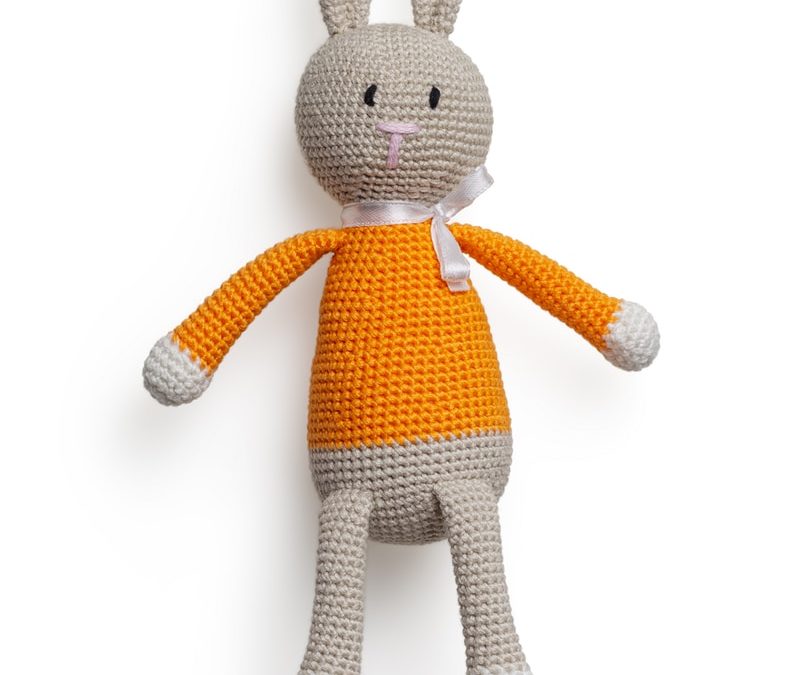
by admin | Oct 6, 2021 | Simple Self Help
Given the ease with which shops and retailers offer credit to all who they deal with, it is easy to collect plenty of personal debt seemingly without trying too hard. If you are already working with debt in your life then you need to take action on reducing your debts.
Understand exactly how much money you owe. Draw up a comprehensive list of all the companies and people you owe money to. Be honest with yourself in doing this process. Open every envelope that is sent by the people you owe money to. Keep them all in one file and in a place where you can refer to it quickly. Stay in regular communication with your creditors (your Creditor is the person who has given you credit as opposed to a Debtor who is someone owing you money), and let them know what is happening - even when you have no money, and nothing is happening to reduce your debts and the amount that you owe.
Get clear on the numbers, and you can be clear on your options.
Dealing with the bills and the debts that you have is best done with a focus on the interest rates that are highest. Split your available funds for debt repayment such that you are making the greatest inroads on the ones that are costing you the most.
Keep a strict and accurate handle on the paperwork related to your debt situation and ensure that you stay away from other opportunities to waste money. Your priority is to deal with the existing debt and reduce it down to nothing, however long this task takes you.
Maintain regular payments to all your creditors even if the amount you pay each month seems tiny to begin with. As you pay down the high interest debts and eventually pay them off, take the amount that was your regular payment and throw that at the next highest interest rate until that is gone too. Over a period of time you will see the same benefits of compounding in your successful debt reduction as you are looking forward to in the accumulation of future savings. Remember that it is not just the regularity of the small payments, but also the fact that you are communicating with your creditors regularly.

by admin | Sep 23, 2021 | Declutter
Guess what? Life moves on and so should you. I truly feel for you when you explain to me that once upon a time that jug or lamp cost you a lot of money on your payday. At the time it might have been a good idea because you bought something which seemed special at the time. But right now is the time zone we are dealing with, not yesterday or even yesteryear. Does that jug get used? Do you fill it with flowers every week? In the warm days of summer picnics is it filled with water and ice for family gatherings? If the answer is 'no', then it's time to go! Remember the mantra that I love to promote - S. D. G. B. Remember what this means - Sell, Donate, Gift or Bin.
Money is important. We all need it to live with and we have to make our way in the world using money to pay our bills and buy our food and utilities. But the life you are paying for is the same life that might just contain a bit of clutter. Am I right? So use your money wisely, make it work well for the downshift lifestyle that you want to create for yourselves. Money is also a very emotional topic and it provokes reaction in every one of us. The economy in many places right now is in a mess. if we are honest, we could all do with an extra income and this is reflected in the growth of people being willing to chat about having a side business or a side hustle to add to what they earn from a job or from self-employed work that keeps them busy.
No one will judge you for being cautious about what you spend your money on, but why hang onto something that has more realisable value once sold and gone that it had while sitting in your home and adding no value. Keeping the thing in your house will not bring back the money you spent to acquire it. The money left your wallet the day you bought it. Time has moved on and maybe the use or value of the item has changed too.
We once had a neighbour who had three cars on his drive. None of them worked. All had flat tyres and rusted bodywork. That's his choice. But one day he might want to move house and sell up. He will have to pay for someone to take the junk off his drive, but in the meantime the whole place will look unattractive and every time he looks out of his kitchen window he must be thinking "What have I done storing that junk in my space?" It can't possibly bring him any positive thoughts about the hanging on to clutter that he has gone through. If it doesn't add value, joy, pleasure to you life, let it go. If it has no value, is broken, does not support your lifestyle, let it go.
If you want to really feel the pain of money spent just consider the cost of holding the things you still have but which you do not need. In cost of rent or mortgage that you pay monthly there is a direct and measurable link between the cost of your clutter and the money going out each month. If your house is twenty percent clutter, then the cost of that clutter equates to twenty percent of your accommodation cost. The same is true of your insurance each month. I hope that encourages you to take action. You are paying to insure this rubbish! Stop it now.
You and I have both made mistakes with what we have bought in the past and how we have used or mis-used our funds. It's time to forgive ourselves for these errors and to accept that an item, which we once appreciated enough to pay a lot for, no longer holds that status or value and can be let go of.
You did the best you could with what you had at the time. You really did think you were making a good decision when you bought that item. I know. Grasping hold of this will allow you to move forward and say goodbye to the item without any more guilt.

by admin | Sep 9, 2021 | Declutter
While we may understandably want to break free of the clutter that surrounds us, we first have to deal with the emotional issues which have stopped us from taking action. The confusion here can come from you having a different emotional attachment to one item that another member of your household or a close friend will have with it. If your best friend thinks that having a dozen antique clocks in her house is normal and acceptable and you think it eccentric or even odd, you will see where I am going with this.
You might have a garage filled with walking frames, an electric powered mobility scooter that has long since eroded to being useless, and an upright piano. All these things arrived at your home twenty years ago when your grandfather died and none of your other relatives stepped up to the plate. You took responsibility for clearing these items, and for one reason or another you never managed to dispose of them. Your friend might have an attachment to the clocks because of her own family history and the ways in which she has accumulated them over several years.
What's your own story about the garage that can no longer be used for car storage or as a home workshop? In this way you see that one persons acceptable storage is seen by someone else as a pile of weird rubbish that should be chucked out.
A common excuse for not letting go of the clutter appears as : "I have to keep this. It was a gift". To which I say, "But was it a gift you loved immediately and knew you would always treasure?" If not, let it go.
We can fill our homes with birthday presents, art work from school when our children were toddlers, wedding presents from people who had bad taste in their choice of gift, or from recent presents we were given at a family gathering. The moment something has been given to you it is up to you to choose what you do with it. Why do you see so many good quality things uploaded onto auction sites immediately after Christmas, ThanksGiving and of course through out the year as people let go of the birthday and housewarming gifts they do not appreciate?
Keeping something you don't like in your house is a negative behaviour in that it does not truly represent who you are. Holding onto a gift when you do not like it, out of fear that you might hurt the feelings of the gift giver, is no way to lead your life as an adult. This whole process of Letting Go is about making your living space somewhere that is calm, supportive and filled with the energy you like. This means that what you have on display and see as you move around your home are items that you like and appreciate for their style, design, or attractiveness.
If Aunty Mary gave you a hideous vase as a wedding present five years or fifteen years ago, it should not be on the mantelpiece, on the shelf or even in the house. Sell, Donate, Gift or Bin. Certainly remove it from your space. Aunty Mary will understand. The item and your feelings and thoughts about the item are not the same thing. If you love the person, but don't like the gift, let it go. Your home should be a place of calm, not of guilt or unease. This process is all about you. Put yourself and your feelings and happiness first.

by admin | Sep 8, 2021 | Simple Self Help
This one is really easy. To hold onto your money and see it grow, simply spend it at slower rate than it comes in. Now, was that rocket science? Hardly! But most people have no idea how they spend their money. Slow down the pace at which it leaves your account or moves through your hands.
I suggest that you grab a sheet of paper and take it everywhere you go for a whole week. Use it to record every single penny, peso, dime, dollar, shekel, and euro you spend. Keep every receipt and write everything down. Do the same again the second and the third and fourth weeks and in doing that you have a one month pattern of your spending and inflow.
By totting up the numbers on your sheet for each week and deducting this money from your weekly or monthly income you know exactly where you stand financially each month. And all you have to do to win at the money game is take an area of your regular expenditure, work out what this is as a percentage of your income and ensure that next month you spend a reduced portion of your income in this area.
You either increase your income or reduce your expenditure in order to start winning. If your income is fixed, but you reduce your expenditure then you will be ahead of the game and you can choose to enhance the quality of your life by spending on some better things, or you can place the surplus into a savings account.
If you can increase your income and maintain the same fixed costs you can do the same again and place more money aside into an account where you get the rewards for having done so.
Where you can do both i.e. increase your income and reduce your fixed costs, then you are in control of a positive move forward, maintaining a lifestyle you choose and placing cash in the savings programme for your benefit further down the road.
Wherever and whenever you start, enjoy the process and realise that through the decision to keep track of your money you put yourself in a position of being able to keep hold of the money for the long term. So get pro-active and start to monitor all the money that comes your way. By knowing what you have and where it goes you get to choose how you spend what you hang on to.

by admin | Aug 26, 2021 | Declutter
In a house filled to overflowing with 'stuff' this, of course, is true to some extent. Yet how much do you need to bend reality to consider that you should keep five flathead screwdrivers of the same size, or that there should be six breadknives in your kitchen when one will do the same job? How about the many sleeping bags and knitted blankets in the spare bedroom?
You've hung on to these since your kids were teenagers and you keep them in case you and some future visitors should be snowed in one extreme winter? It doesn't matter how you justify keeping these things, because your reasons have served you well until today. I ask you to consider them from a fresh perspective. If it might be useful, but you haven't used it in a year, let it go. Bag it, box it and take it to the goodwill shop.
There is a tendency to learn from our parents and grandparents that everything has a potential future value. We learned their value system and in most cases the good things we were taught can help us in life and we can pass on the good skills to our children and friends we care about. But there were things which were relevant forty years ago that just have no value now in a different, faster, more complicated, less self-reliant approach to life where we are these days.
Do you need to know how to build furniture in your garage, or keep all the tools to do so?
Should you be skilled in curtain making, dress making, book binding, or picture framing?
Is bike repair a skill you consider hugely valuable?
Should you hold onto all the furniture items in your home?
If two of your live in your apartment or house, should you have enough seating for another dozen people?
My Mum recently moved from her home where she and Dad raised us all, into a nursing home where she can be better looked after than if she were living alone and subject to the dangers and worry of infirmity and falling. My brother and I calculated last week that in the downstairs rooms of the old family home we have three sofas, three large armchairs, eight folding garden chairs and a glass dining table, eight stacking chairs and a dining table for the sun lounge, one dining table and four chairs for the middle dining room, and two writing desks and chairs. That's enough seating for thirty four people in a house that Mum has lived in on her own for more than ten years!
The house doesn't feel cluttered, but this volume of furniture represents extreme clutter. It also serves as a reminder that where nine of us once lived together, it was in a house that hosted parties, events, prayer groups, history club meetings, parish meetings and where there was always a chair to pull up and chat with my parents. Nostalgia and clutter do tend to exist arm in arm. My brother and I will work through the furniture and see who wants want - and will turn up to collect it - and then decide where we donate the rest to ensure it continues to serve where it is needed.

by admin | Aug 12, 2021 | Declutter
In a recent volunteering week at a countryside youth hostel for walkers and climbers, in the heart of the beautiful English Lake District. I was part of a ten person group who were there to prepare the hostel for the next six months of heavy use by visitors. We all worked together to clear rooms of furniture in advance of commercial carpet cleaners. In small teams of two and three we painted the common room and dining rooms, we painted corridors and stairwells. One day I worked outside and pushed wheelbarrows of gravel to create the paths around the campsite. On another I chopped up small branches and old timber pallets to create the kindling for the open fire in the main common room and bar area.
It was a brilliant week away from home, working at practical tasks each day and then being free in the late afternoon for a walk on the mountains that surrounded us and a chat in the bar and by the log fire each evening. Each day I chatted with whoever I was paired up with for our work and it was fascinating to see a glimpse of the lighter life in action for these other volunteers.
Lisa was on the same week with me. Incredibly she has spent 40 consecutive weeks living at hostels and working or volunteering to have somewhere to stay. She has a small van which she can sleep in when not working at a hostel. It is kitted out with a gas stove, a foam covered bed platform, blankets and a couple of bags of her clothing. I learn that she has a one bedroom flat in a small community on the border between England and Scotland and she goes back to this as and when she is not volunteering. By structuring her volunteering weeks on an often back to back basis, she is often away from her flat for three months at a time.
Having minimal possessions in the flat she has created a lifestyle where she meets new people every week she is away. Her expense money covers all her costs of travel between hostels. Like me and the rest of us, she was fed and given good accommodation during the working week, so her savings increase steadily across the year.
Many of the people who formed my group of volunteers that week have made volunteering and working, in places that provide food and accommodation, a strong part of their lighter lifestyle. Of the other nine I worked alongside, five of them all volunteered regularly and spent between six weeks and twelve weeks each year away from their own homes. So just two of the ten of us were new to this way of living lighter. Half of my new friends were single and half had a partner at home.
My week in their company was a tremendous insight into how you can have more opportunity and greater adventure. Each of the people I spoke with about this lifestyle choice said directly to me or more casually in group conversations, that they had cut back on their possessions at home in order to be able to see a volunteer opportunity they wanted and apply for it. They knew they could lock up the house or apartment and head off to the location to enjoy themselves while contributing to a cause they believed in. In this case the creation of clean and refreshed accommodation for the walkers, climbers and runners who look to stay with like minded people when enjoying the countryside, and being able to return at dusk to such gorgeous locations and good evening company.
Could you manage a week like this somewhere with an organisation who would appreciate your help, support and time?

by admin | Jul 29, 2021 | Declutter
The reasons are many and often complicated and the exploration of these is going to open up that proverbial 'can of worms' as we work through these together. The power of emotions has the greatest hold on us as we delve into this topic and some of the reasons will astound you. At the very least you will be surprised by some of the learning you make in the process. Ask yourself :
"Why do I have Grandpa Tom's hand built coffee table in my life?"
"Does the clock on the wall that was on a mantelpiece in my long-dead Aunty's house need to have a place in my own living room, some twenty years after she passed?"
"Does the team football photograph that showed my Dad as a young man about to leave school seventy years ago need to be on the wall in my hallway?"
"Just because I was given a hand painted teapot and matching cups and saucers by my best man and his wife when we first married twenty-five years ago - and divorced after twelve years - should I still have this on the shelf in my kitchen? Especially when I have not used it in the two years since we took it out of the box it was found in?"
These are random questions that I use from my own example of clutter and accumulated items in the challenge that we set ourselves at home. I am sure you can easily find your own relevant examples of things around you.
Here are a couple of simple questions for you today, intended purely to help you find your place in all of this.
Do you consider that you have all your possessions under control?
When you see the clutter in your house, whether on display in the common areas and daily used rooms of your home, or stuffed awkwardly into the lesser observed areas of cupboards, attics, basements or boxes in the garage, how does that make you feel?
Enough said! Your clutter is personal to you and your lifestyle as well as to your attitude and approach to life. Millions of other people live with everything they own under one roof and they experience no guilt or upset. But this exploration of letting go is not about them. I have confessed my own situation and how I felt that so many material things were draining my energy and time. The things we bring into our home space should be there because they make tasks easier or to bring us happiness. Where our possessions become so many that they are more than we can manage and they start to distract us from living the life we should be enjoying, this is where the trouble begins and the stress begins to wear us down. We work longer hours and spend more of our disposable income just to keep the possessions under control by such things as storage, insurance and taking on bigger and more costly spaces to live in.
Quite naturally, we need to place much of our focus on our home, on our living space and the things within it. But a full approach to letting go requires that we don't just limit ourselves only to mess and chaos, to clutter and junk as they appear in your physical world. We will also explore the damage that comes from being connected with toxic people, the distraction of digital clutter and the overwhelm that can come from addiction to gathering more around you than you need.
To answer the question of "Why do we gather clutter?" we do this because we are human. We do it because we feel we need to collect things around us so that we can make statements such as these:
"I am safe now".
"They are not making this quality any more, so let's get one now".
"I can provide for my family".
"I deserve to have this because I have gone through so much".
"Do you know how much I had to work this month?"
"This was a bargain, so I had to get it".
"We've been struggling recently so I figured we deserved this".
Being human gives us a sense that we have to carve out our own identity in a world that is so often homogenised, identical, similar brand - different perspective, must-have, latest trend, special item, but really very much the same. We think that by surrounding ourselves with the things which reflect who we believe ourselves to be in the world, we will then create a space which feels unique to us. And when you first do this, starting to accumulate the things around you which make you feel good, it does seem like you are achieving the goal of originality. But at what cost, or better said, at what price?
What price have you paid to fill your home with the things that you have purchased in order to bring home and use to say "This coat is me" or "These books and this desk are me" or "This car is me". Some of that is your own voice and heart talking. However, there will be a proportion of 'stuff' in your dwelling space which has got in there, easily or by pushing it's way in, because of advertising, because of the cultural influence of your neighbourhood or peer group, of social media and what is or is not 'on-trend' this week. Letting go of this stuff will emotionally and physically open up space in your home. While it can seem like a push to make the decision to look at each thing we have and bag or box it for discarding or donating, the value of doing so is beyond measure.
As we go on this declutter journey together, there will be opportunities to work through various exercises and activities. All voluntary of course. One very probable realisation is likely to be that your early dreams and aspirations for what home should look like, but also feel like, will make themselves very clear to you. Some of these will have been completely forgotten over previous years, others will whisper gently and kindly to you and ask to be let back into your living space to reflect all those good aspects of you, your character and your values. Welcome them when you see them, as you surely will when you reduce the distraction that has been overwhelming your personal space.

by admin | Jul 15, 2021 | Simple Self Help
The best money you can ever spend is money invested in your own mind, expanding the quality of your knowledge and increasing your ability to take control of your circumstances or make new ones that work better for you.
Whether it is attending an evening class, going on a weekend seminar, listening to podcasts, learning via the internet or simply browsing in your local library or used book store, you are giving yourself new information and creating new neural pathways in your brain. Once you have exposed yourself to new information your mind cannot go back to how it was before.
My friend Ian once said to me that
"If you read for one hour a day on a topic where you are a novice, within a year you will become incredibly competent in that topic and within two years become an expert."
Imagine what a great place you will be in by doing this!
Pick something you want to know more about:
- Painting with Oils;
- Building your own Home;
- Cooking with Pasta;
- Investing in Property;
- Creating Games for your Kids;
- Home Budgeting;
- Do it Yourself Car Repair;
- Growing Roses.
You choose the topic and do the work, and your mind will take care of absorbing the learning. Place the new information in front of yourself and enjoy what happens.
Join a class, get into a discussion group, contribute your thoughts to a book club, and meet with the people who can teach you new skills and insights. You will be astounded at the power of your mind to expand to new learning.
Start your self-learning with something you are curious to learn more about. Once you have enjoyed the fruits of this learning, pick a topic that might help you in a work related skill, in your home life, or in building your skills with other people and watch your progress.
Get down to the art gallery. Book yourself on a course in archaeology or ancient history. Buy yourself a session in a life drawing class or a series of flying lessons. But do any of these things because you want to follow your curiosity and satisfy an urge to learn more about something.
Remember this piece of information from a wise one:
"A skill once learned can never be taken away, and your mind can never revert to the time before you gained the new knowledge."

by admin | Mar 25, 2021 | Debt
This is too complicated for me!
Is it the role of someone else to help you? Do you trust believe that you can't manage your money on your own? You need to find help, but you don't know where to turn and you can't be bothered to make it a priority to go out and find a solution to the problems you are expressing.
"I can't be expected to balance my accounts on my own."
"It's OK for them. They are better educated and understand this stuff better than me."
"She can manage her money. She's more savvy than I am."
"I can't do this number stuff. I did bad at mathematics when I was at school."
"My own expenses are so different from my neighbor / workmate / brother ..."
"I could do this if only my parents had explained all this to me when I was a kid."
"It's difficult for me on my low income in this job."
These are just a few of the reasons I have heard people give for being out of control when it comes to money and their dealing poorly with money. It doesn't matter what the reason is that they give. The one that you like to use or have latched on to when explaining your difficulties around money is just an excuse. It is an excuse for pushing the responsibility away and either giving it to someone else who should have helped you or taught you or shown you how to do this "money stuff." They didn't. So get over it.
Any of these items are the warning signs of your debting behavior. When it comes to sorting out your debts and dealing with your money in a way that works, then you have to recognize that you need to let go of the excuses. Only you know your numbers. Only you can make the changes in the way that you deal with money in your life.
We all deal with money differently. None of us are the same. My experience of debt is unique to me. Yours is personal to you. If you see yourself in any one or more of the warning signs then it's time to start to adopt a few new habits. There is a quote that says:
"The definition of madness is doing the same thing again and again and expecting a different result."
I do like the truth of the words. If you are doing the same things with your money month after month - and you are still unable to pay all your bills then something needs to change this month if you are going to make some positive progress. You are what needs to change. You have created the situation you are in by the small actions and consistent behaviours you have made to reach this miserable place. The lack of control, the fear, the embarrassment you feel are all real. The good news though, is that you have all the resources you need to become debt free and the first step along the way is to recognise that the mistakes have been made.
If you are continuing to ignore the post, telephone calls from creditors, and are still experiencing the fear of a 'decline' message when you put your bank card in a shop or caf card machine, then let's start to do some things differently.
You don't want to continue your debting. We all want to deny that the problem is here, or we want to pretend that we are not affected by debt. This is natural behavior to protect ourselves, to defend against the suggestion that we are out of control financially. Going forward from here, your solutions lie in changing your debting behaviour and adopting new practices around money. Not just about earning money, though increasing your income is an important place to focus your attention. At the same time you need to recognise the need to change the way you shop, adapt the current poor saving behaviour, and to cut your costs in every single place you can.

by admin | Feb 25, 2021 | Debt
What value do you place on your own peace of mind? Practical changes here are less simple to determine and to define, but I would like to suggest that one practical step you can take is to become more conscious in your thinking about money, debt and savings. You have an income from a job and hopefully you have created one or more incomes from a side hustle or part-time business that you run alongside your main work. Being reliant on just the one income is a potential problem waiting to happen in the event of a layoff, reduced hours, or the change to the structure of your workplace.
Being consciously aware of your money in and out, taking the time to track and monitor the flow of monies around you is crucial to success in achieving the necessary changes to reaching debt freedom. Success in reducing debt is like success in every sphere of your life - it requires you to work at it diligently and with focus. So build time into your schedule to be aware of the money, to look at the bills and the statements associated with your debt, with your earning, your tax and your savings activities. You must not think that you will become debt free just by setting aside some of your income, or only by requesting the stopping of interest from your creditors, or even through the act of setting up some envelopes for separate household expenditures. No, you need to get yourself actively involved in each practical area of your money and how it functions in your day to day life.
Make time on a set day each week to look at your numbers in detail. This is your income for the past seven days and the predicted income for the next seven. Let me be as bold as to say that if you only have one job and you are paid monthly, that you should look at some other activities to create revenue for the other weeks of the month when you are not receiving money. As a private landlord, as a writer and as a networker, I love the fact that I get a monthly income from my writing, but that I get daily rental income from the rooms we rent and manage. This happens because I have more than 31 tenants, enough literally for there to be someone paying their rent each day of the month. I know there really is some money coming in every day and this gives me great confidence in planning my finances.
But it was not always like this and I hold a clear picture of how difficult it was to climb out of debt myself. With our networking business we also get a monthly bonus as well as a weekly payment for activity. When I had a job with a monthly salary I got paid one day a month and felt like I was holding my breath for the other thirty days and dreading a large bill coming in.
When will you look at your diary and set aside that time to focus on your money flow?
* Can you get a simple filing system ready for the paper bills and some online tracking notes or software to record the movement of your money?
* Do you need to clear anything from your diary that is costing you time and money and not bringing a return worth having?
* Can you make enquiries about a part-time job that brings in additional money?
* What business opportunities can you explore locally or online to create another income stream?
Make an appointment with yourself to sit down and look at your diary, at each of your bank and savings accounts and at your thoughtfully filed debt paperwork.
Create new results by thinking in a different way about these important aspects of your life and see yourself getting closely involved in your journey to debt freedom.









